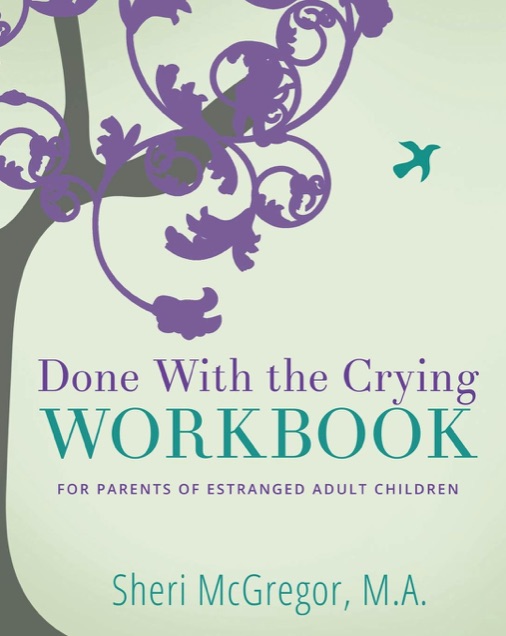
In a recent newspaper article a columnist wrote about a mother’s loneliness after she was abandoned by her adult children. It was heart-breaking to read.
After the newspaper article was published there was an overwhelming reaction across social media.
The majority of the reactions came from older parents, saying that they too had been abandoned. Most were both bewildered and saddened by the actions of their adult children.
It seems amazing that in this age of instant digital connectivity an ever growing number of parents have been totally abandoned by their grown up children.

What is the reason for this epidemic?
Does it stem from a specific incident perhaps, an argument or a criticism taken the wrong way, the disapproval of a new partner, or could it be from unresolved tensions from earlier years?
Perhaps this growing abandonment has something to do with today’s society, which is a busier place than it’s ever been before.
Maybe the loosening family bonds has something to do with the way we handle conflict today?
How many criticisms and arguments are now left unresolved, and left to fester in resentment over many years? Years ago they were forgotten for the sake of love, family unity and ultimately the greater good.
These are all points worth considering.
There are more but whatever the reasons may be this growing lack of contact by adult children not reaching out to their loved ones is having a real impact on elderly parents.

And all of it is negative.
Many parents are feeling a lack of identity after being abandoned by their children. After all parenthood was such a large part of their lives and when it is gone it leaves nothing – other than a big dark hole of sadness.
After being rejected by an adult child, the idea of moving on can, for many, feel like giving up.
In turn giving up and trying to move forward in life simply brings about feelings of guilt. It’s self perpetuating cycle.

It’s therefore not surprising that this leads to many parents questioning their character and raison d’être.
What kind of a parent can just get on with life as if nothing has happened?
The answer is very few parents can move on with such abandon. Most, on some level, keep holding out in the hope of a reconciliation.
However, staring at a silent telephone, desperately waiting for the uncertain return of your adult child can lead to despair, depression, anxiety and even suicidal thoughts.
Anonymous understands how hard that can be. This is why adopting the foregoing solutions (written by Sheri McGregor of RejectedParents.net ) can help you if you are an abandoned parent.

One: Don’t pretend you’re not hurting.
Getting on with life despite what’s happened connects you to other people and activities, helps fill the void of loss, and can help you to heal.
Fearing judgment, you may be embarrassed to share your painful truth. And you may be right to hold back with people at work, or certain friends you feel won’t understand or will judge you. It’s helpful to reach out to a trusted, empathetic friend or two, but whether you can or can’t confide in others, don’t deny your feelings exist. Accept your emotions as normal in the situation.
Some common feelings of rejected parents include:
*Guilt: I must not have raised my child right. An adult child’s rejection may cause parents to look back critically at their parenting skills, even magnifying some incidents or interactions during the child’s growing up years as proof they did a poor job.
*Anger: I raised my child better than this. What happened to honouring one’s parents?
*Helplessness: How can he/she refuse to take my call? Parents realize they have no control over their adult child’s actions.
*Fear: What if my other adult children leave me too?
*Denial: This can’t be happening. Surely it won’t last.
*Uncertainty: Am I crazy? Is this all my fault? Am I that insufferable? Will this ever end?
*Failure: I feel powerless. Abandoned parents may have a sense of failure at having tried everything, but nothing has worked to restore their relationship.

These are just a few of the feelings you may encounter in response to an adult child’s rejection, betrayal or neglect. Keeping a journal or simply free-writing about your feelings may provide a safe way to offload them.
Some find an online group designed as support for parents of estranged adult children useful.
Acknowledging your feelings, whether in a journal or by sharing with others you trust can be healthy, but try not to do this to excess or in a negative way.
Two: Don’t Ruminate
Listen to your thoughts. Do you catch yourself saying aloud or thinking, “I’ll never get over this..” Are you continually asking questions, such as, “Why do these sorts of things always happen to me?” Called “ruminating,” this sort of negative thinking spurs more negative thought, perhaps even calling to mind the other things that “always happen.” Clinical studies have linked ruminating to high blood pressure and to unhealthy behaviors such as binge drinking and overeating, so steer clear.
How to avoid ruminating?

Turn your statements and questions around with positive thoughts. “I am moving past this. Good things happen in my life.” This suggestion may sound trite, but if negative thoughts can produce more negative thoughts, positive thoughts can be as fruitful.
When you catch yourself thinking negatively about your adult child or the situation, notice your physical body as well. Are you holding your breath? Clenching your jaw? Tightening your fists? You may be experiencing a stress response that isn’t good for you.
As reported by researchers at Hope College in Michigan changing one’s thoughts about a stressful situation, perhaps by considering the parts you handled well or imagining offering forgiveness, changes the body’s responses. In short, the way we think about things can reduce our physical stress response
Take a few deep breaths, loosen up or even get up and move around. Drink a glass of water. Do something to aid your physical body and health as well as positively altering your thoughts.
Three: Focus on the Good
Take time out each day to consider the positive situations and the good people in your life. A journal of good thoughts written down at the end of each day is a healthy habit, and a formal record is fun to re-read later. However, a more casual approach can be effective.
Keeping a positive focus after an adult child’s rejection.

Here are a few suggestions:
Instead of joining everyone in the lunch break room each day, take a short stroll outdoors instead, or perhaps before you join the others. The benefits of nature to the psyche are well-documented. Be sure to experience your surroundings to the fullest, by taking notice. “The dappled sunlight beneath this tree is pretty. The breeze feels good as it goes through my hair.”
If getting outdoors isn’t an option, you can still focus your thoughts in a positive direction. Perhaps recall moments from your morning that went well. “I’m glad I was able to make that telephone connection and cross the task off my list. I arrived at the office earlier than my boss this morning. I’m lucky my co-workers are helpful.”
Looking to the future with a positive focus promotes the well-known attitude of gratitude that’s so helpful. “My dog will be waiting for me with a wagging tail. I look forward to my favorite television show tonight. I’m so thankful my aging mother is well.”
Four: Forgive.

Parents have known and loved their children for so long that forgiveness may be second nature – – or not. Perhaps you blame other people who are involved with your adult children. Or maybe you blame yourself. We all make mistakes, so work to forgive. Because of the personal benefits, forgiveness is a gift you can give yourself. Forgive for the sake of your own happiness.
In a study published by National Institute of Health in 2011, researchers found that older adults (median age 66) who forgive others report higher levels of life satisfaction. Forgiving freely, without requiring an act of contrition, (such as an apology or admission), was particularly beneficial. Holding one’s forgiveness hostage to some act or condition was associated with psychological distress and symptoms of depression.
Five: Accept.

Accepting the reality of an adult child’s abandonment, and your helplessness to change it, may feel like letting go of hope. Reconciliation may eventually take place, but in the present, accepting what’s happened allows you to make the most of your life in the here and now.
Most of us have had to accept other disappointing realities during our lives: a loved one’s death, the inability to finish college due to other responsibilities, or an unrealized professional goal. We all have disappointments, but the vast majority of us accept reality and move forward, perhaps in more fulfilling directions. Even after an adult child’s rejection, you have the right to enjoy your life. Dwelling on the past or struggling with pursuits that, at least for the moment, are futile, only serve to rob you of precious time.

Acceptance may take determination, but is worth the effort. Acceptance allows you the freedom to be who you truly are: A strong person blessed with many people to love and share your life with.
By accepting the sad reality of one adult child’s rejection, you can better spend your time and energy on people that want your company, on interests that are meaningful and fulfilling to you, and where you can make a difference.
And Finally….
We would like to thank Sheri McGregor of RejectedParents.net for the excellent help and guidance she provides to the world’s rejected parents.
Let us leave you with Michael Jackson and You Are Not Alone.
Authors: Michael W and Sheri McGregor
Edited by: Michael W
Special Thanks To

